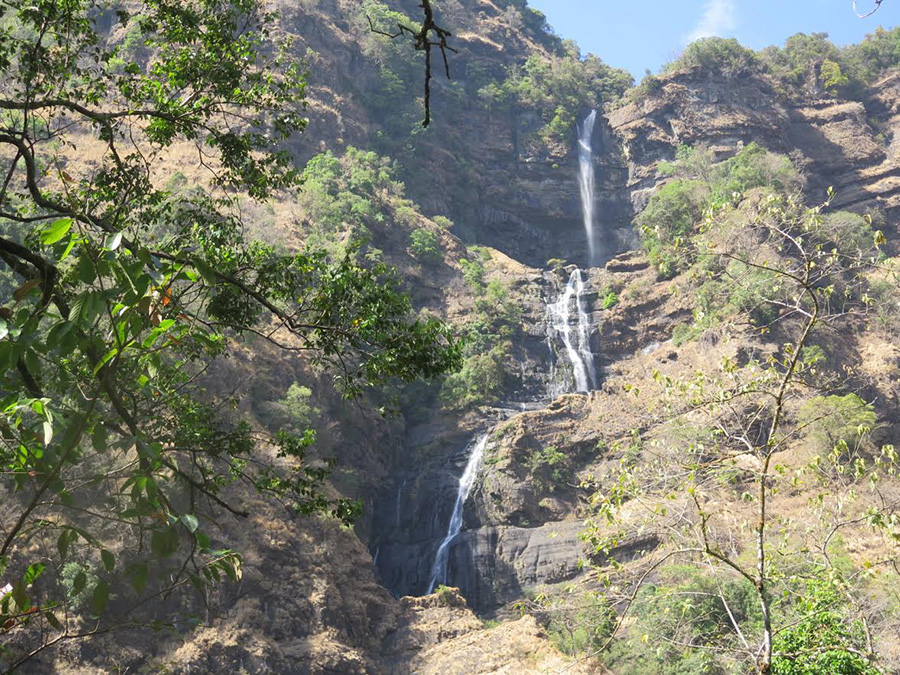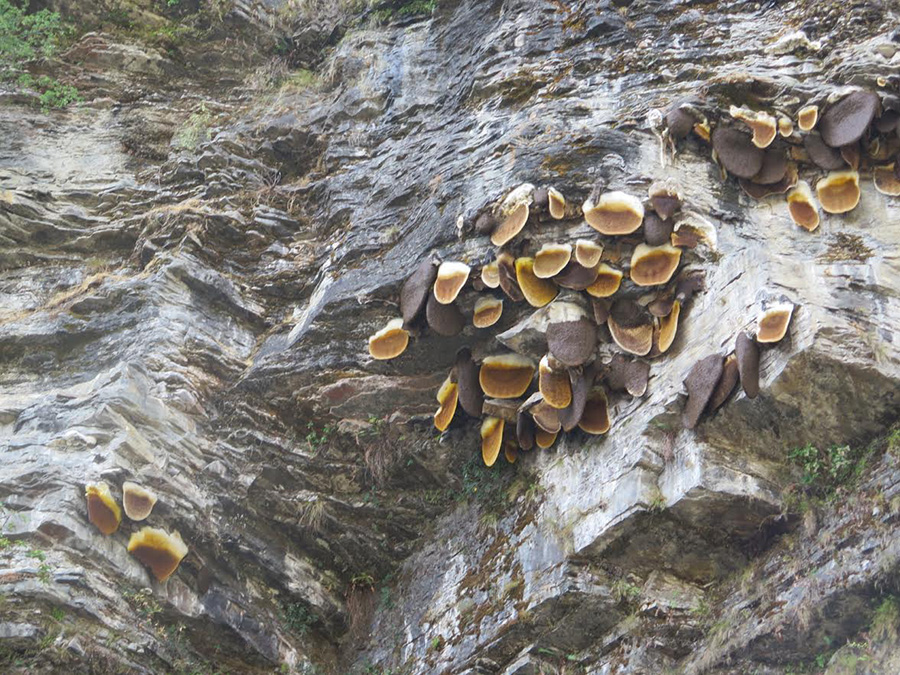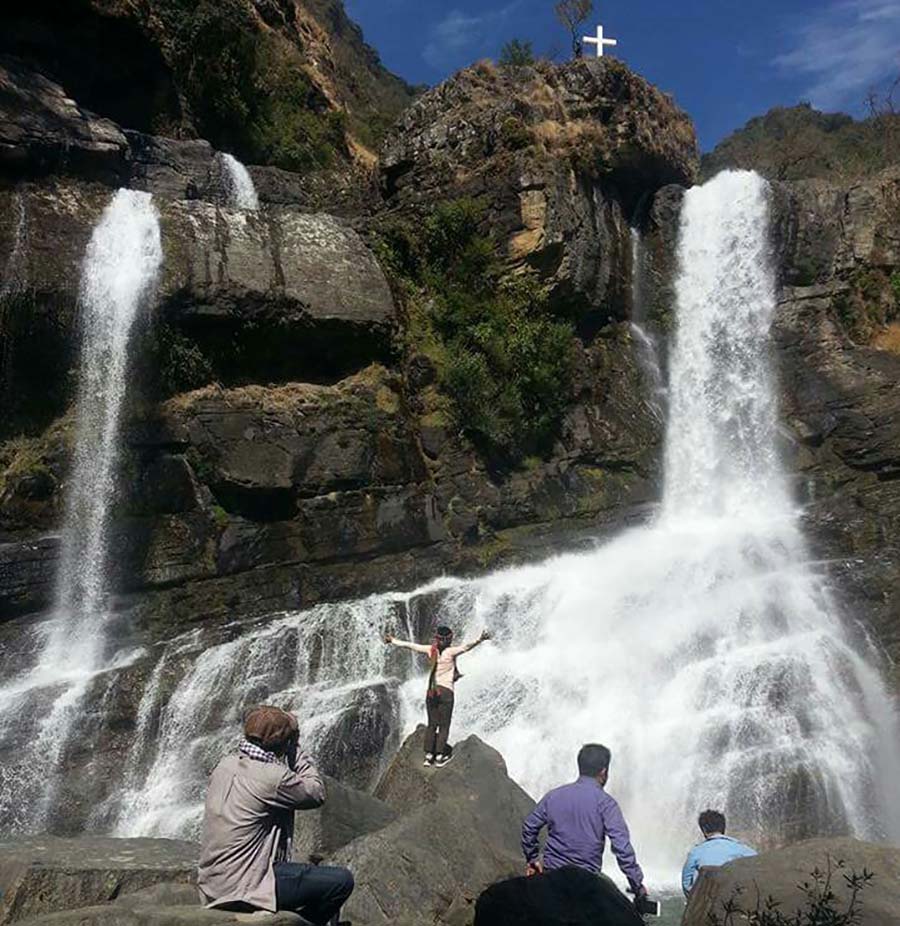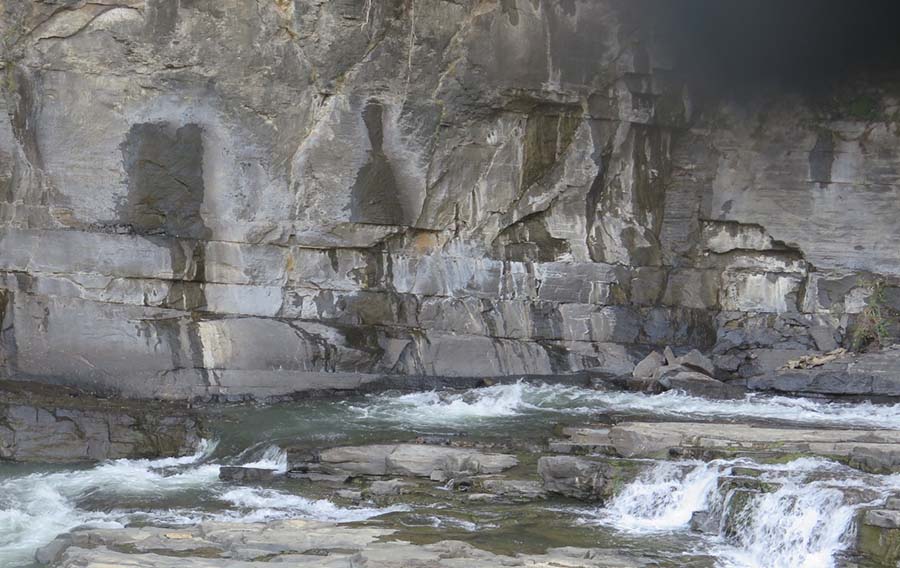A tour of Matupi, in southern Chin State, is incomplete without a visit to Bungtla, a spectacular cascading waterfall standing in majestic isolation.
The nine-tier waterfall is located near the village of Hti Saung, 14 miles southeast of Matupi. The Lemyo River originates from the waterfall and empties into the Bay of Bengal in Sittwe, Arakan State.
Water falls from a mountain more than 4,200 feet high, making Bungtla around 3,000 feet tall.

The best mode of transport with which to reach the waterfall is a motorbike taxi from Matupi, because there is no bridge for cars to cross Bon Laung creek, which is six miles from the waterfall.
Hti Saung is around ten miles from Matupi—from just beyond the village, the upper tiers of the waterfall are visible.
Two miles past the village, a path leads to the waterfall. Though it would be possible to widen the path so that cars are able to use it, locals are opposed to building a road, and insist on taking a two-mile walk to the waterfall.
“Locals oppose building a motor road to Bungtla for fear that it would impact the environment,” explained editor U Khin Maung Thein of the Matupi Times news agency.
The path leading to the waterfall is relatively smooth, and lined with shade trees.
One mile into the walk, the sound of water falling becomes apparent—greetings from Bungtla, which waits at the end of the woodland path.
On the stone walls beside the falls, there are bee hives as large as two feet in diameter, while rare flowers bloom on the upper tiers. Of its nine tiers, people can only climb to the fifth. Locals say no one has reached the four upper tiers because it is so steep.

“In other local waterfalls where I’ve visited, water flows down from a valley. But in Bungtla, water comes down from the top of the mountain. This is unique. Bungtla is the most impressive waterfall I’ve ever seen in Burma,” said Ko Zaw Min, a visitor from Rangoon.
Local ethnic Chin communities view Bungtla as more than a recreation site, describing it as part of their God-given national heritage, the way those in Chin State’s Falam, Hakha, Tedim and Tonzang refer to the heart-shaped Reed Lake. In Matupi, the town hall is even named Bungtla, after the waterfall.
However because of poor transportation in the region, the waterfall barely attracted visitors before 2012. It became better known to the outside world in 2013, and the number of tourists from Burma’s major cities has increased, say Matupi locals.

“The number of visitors to Bungtla, mainly local visitors, has increased year by year. They come from Rangoon, Mandalay and other towns. Some tour companies have even introduced it in Bagan-to-Nyaung-U package tours,” said Matupi local Salai Kyaw Moe Tun.
Bungtla is accessible from two motorways that run to Matupi from Magwe Division.
The road to Bungtla is relatively smooth, but there are no eateries or public restrooms along the road from Matupi to the waterfall, and the motorbike path from Hti Saung village to the waterfall is quite rough.

The name of the waterfall in this article was corrected from the Burmese spelling Bon To La to the Chin spelling Bungtla.
Translated from Burmese by Thet Ko Ko

















